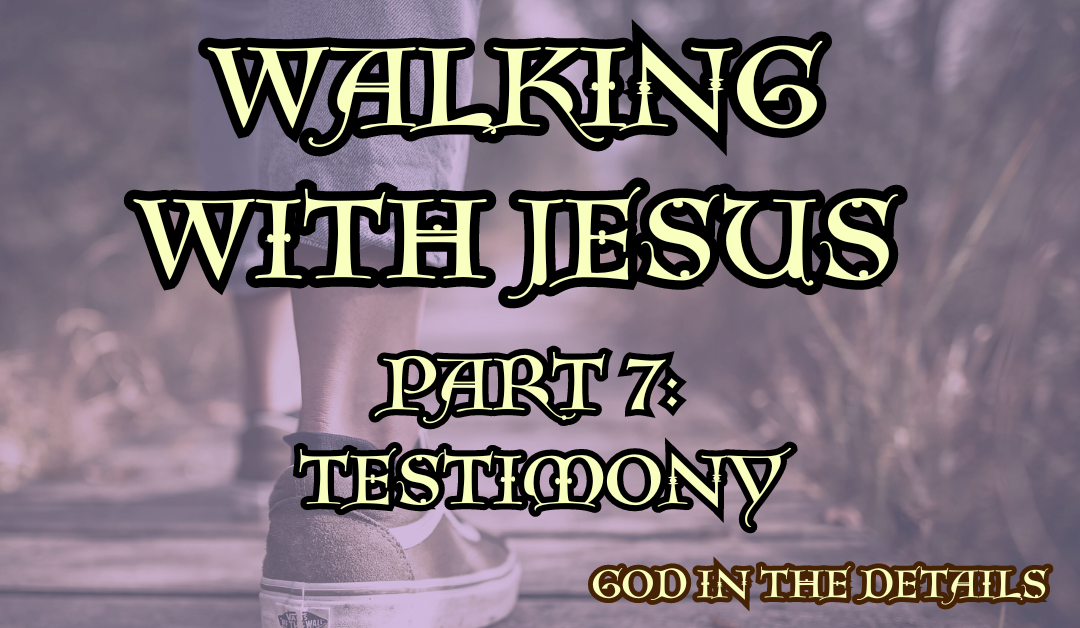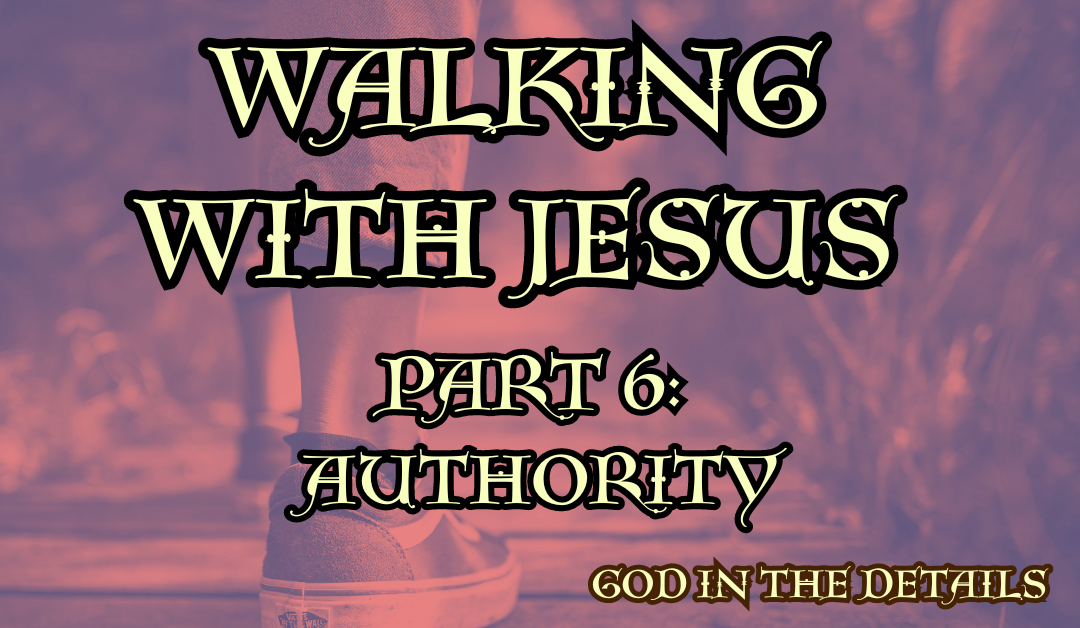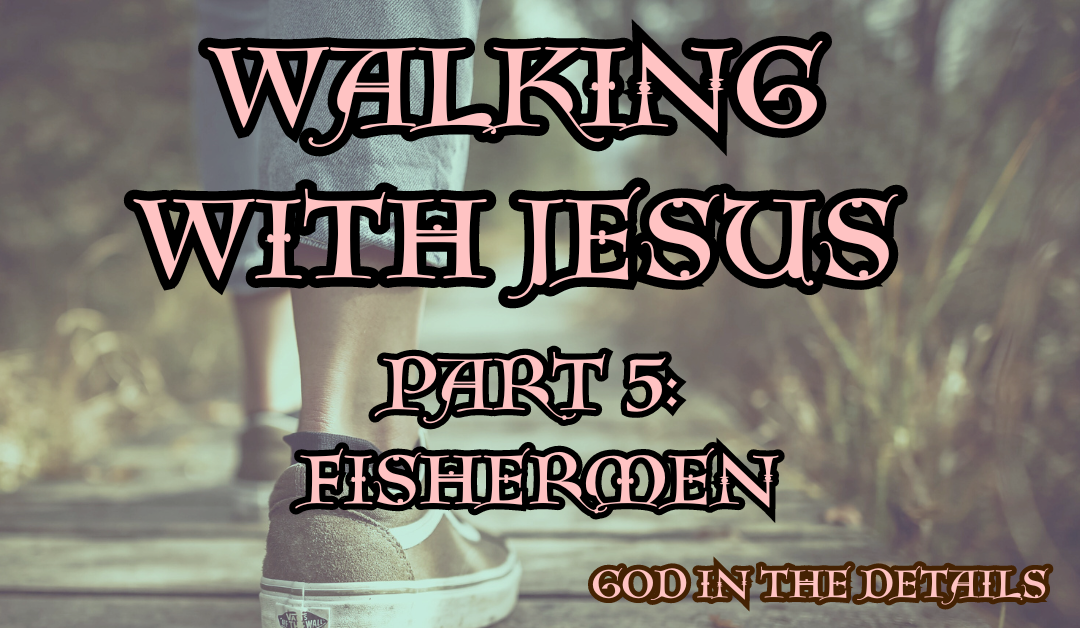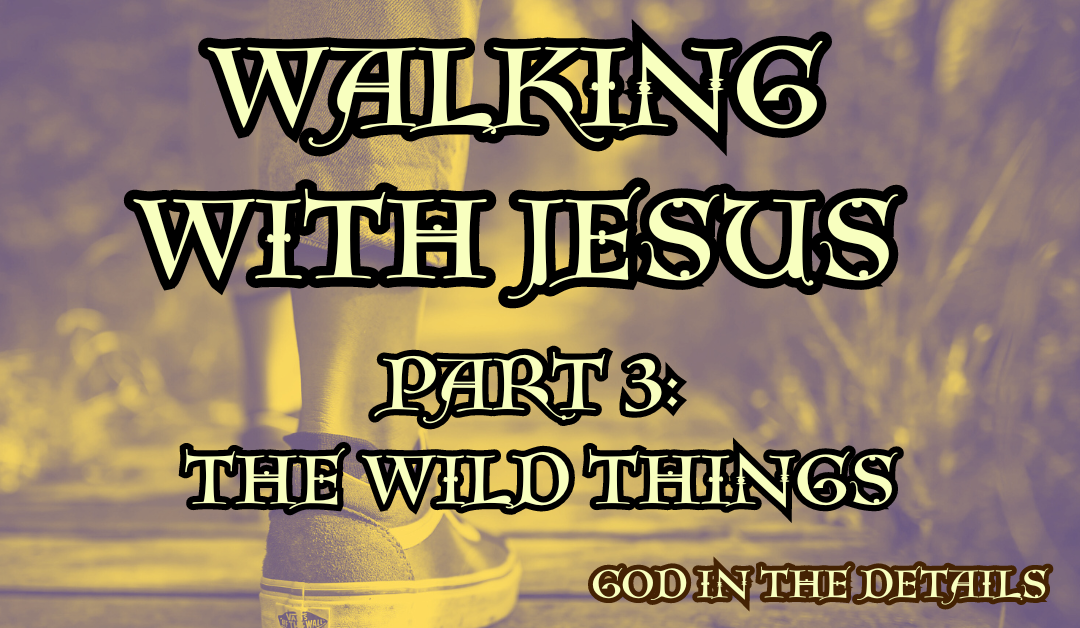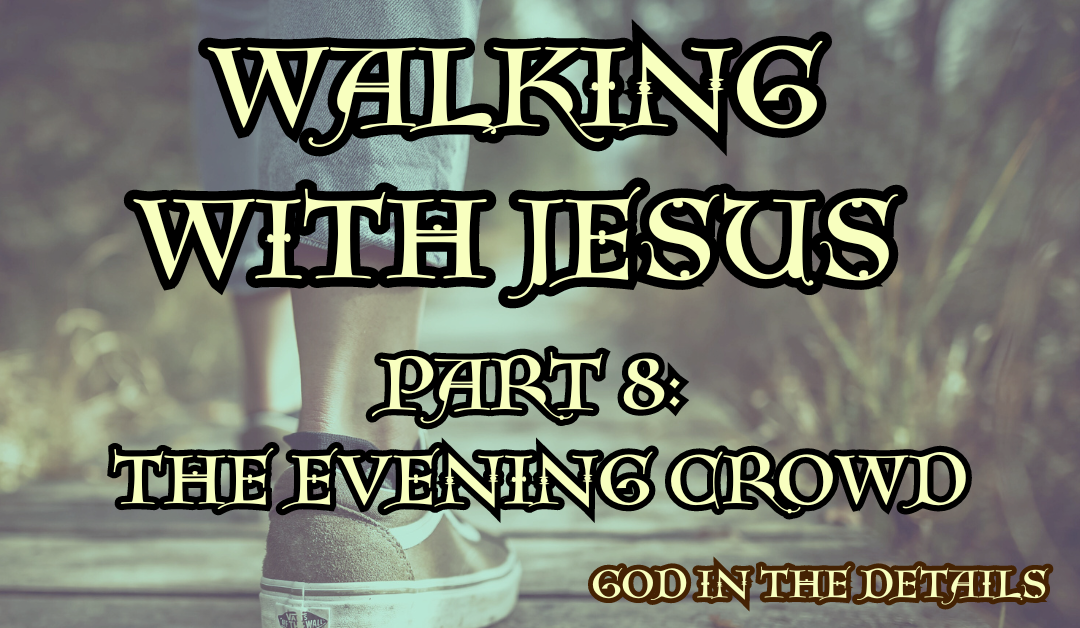
Walking With Jesus Part 8: The Evening Crowd
“That evening after sunset the people brought to Jesus all the sick and demon-possessed. The whole town gathered at the door, and Jesus healed many who had various diseases. He also drove out many demons, but he would not let the demons speak because they knew who he was.”
Mark 1:32-34, NIV
After hearing about the cleansing of the demon possessed man in the synagogue of Capernaum, and possibly the testimony of Simon’s mother-in-law, the whole town seemed to show up at Simon Peter’s house.
They brought their sick and demon possessed.
The Bible says the people waited until the evening – so once the Sabbath had ended. Although keeping the Sabbath was an instruction from God Himself, the law had twisted it into something other than God had intended.
Where it was supposed to be a day of resting in the Lord, it had become a day of restriction and bondage – Jesus did many ‘controversial’ things on the Sabbath, but He never broke God’s law regarding the Sabbath, only the Pharisee’s interpretation of this law.
The Sabbath was supposed to be a day of refreshment and renewal, benefit and blessing.
It is significant that, as the day ended, the people brought there sick and possessed to find freedom. They were moving out of the position of resting in their own understanding and into the true rest of God – that place where our afflictions melt away in the glorious light of His mercy, grace and love.
Jesus came to give us rest (Hebrews 4) – the true rest of God. This rest implies freedom from those things that burden us – our affliction, our malady, our illness and infirmity.
The rest of God implies freedom from the shackles and torment of sin and iniquity – and silence to the voices in our head – the voices of fear, doubt, anxiety and insecurity.
God came to restore us – soul, body and spirit – a complete work of redemption and renewal.
Another interesting point is the fact that we see, for the second time in this chapter, Jesus commanding the demons to be quiet – because they knew who He was…
The first time is in the synagogue, and now at Simon’s house we see a pattern.
Why did Jesus command the demons to be quiet?
The first reason is that the time for the full revelation of who He is was still to come. Jesus did not want it made known publicly to the people – He did not want them to be confused as to His role and the purpose of His coming.
John McKinnon shares the following in his commentary on Mark: “Jesus needed to lead people gradually into the fuller meaning of his redemptive mission and how it would be fulfilled in practice. People needed to convert, to change their assumptions and to question the accepted wisdom, if they were to understand him and the Kingdom he would introduce. Jesus needed to keep strictly in check the destructive conclusions of the forces of evil; so he insistently silenced the demons.”
The other reason that Jesus silenced the demons testimony of Him is found in a commentary by Calvin: “He refused to have, as heralds and witnesses of his divinity, those whose praise could have no other effect than to soil and injure His character. This latter reason is undoubtedly true: for He must have known, that the prince of death, and his agents, are in a state of irreconcileable enmity with the Author of eternal salvation and life.”
Demons were known as lying and deceitful spirits. Vile and evil beings. Christ would have no association or perceived familiarity with them – the ignorant Galileans could easily misunderstand, as we see later in Mark chapter 3 – when the scribes accuse Him of being possessed by Beelzebub.
Jesus comes to address the things that attack and affect us spiritually, but also physically.
In saying this it is also important to note that there is a clear distinction made here between demonic afflictions and everyday physical illness. Not all physical illness is a spiritual attack – often it is just the consequence of the fallen state of our natural world.
A final observation is that Jesus healed the sick and drove out demons to restore people to community. Those suffering from illness or possession were often ostracised and excluded from society because of their perceived sinfulness. These people – healed and cleansed – would now be allowed to see their families again, they would now be allowed to go back home, to get jobs, to partake in public life – Jesus does not just restore us to good health and sound mind, but also restores us to community – communion with Him and with our neighbours.
Reflect:
1. Jesus focused on bringing those who were excluded from public life back into community. How can we reach out to those who are ostracised and rejected? Where might be a good place to start?
2. Why is it important to keep the Sabbath – or a specific day on which we rest in the Lord? What are some of the benefits of practising the spiritual discipline of rest?
Prayer: Lord, I thank you that Your heart and mind for us has always been restoration. Lord, restore me – physically, emotionally, mentally and spiritually. And as I am restored give me opportunities to share this hope with others, so that they too might find You and be restored in body, soul and spirit. Give me wisdom in how to reach out to those who are often overlooked, so that they might be restored to community in the fellowship of Your Body. In Jesus Name. Amen.

